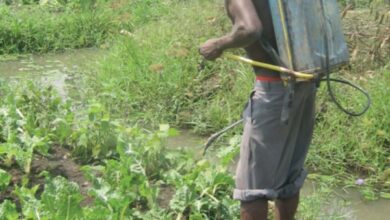Harness city garbage for energy to safeguard lives
Converting waste to energy reduces the amount of garbage sitting in landfills and the pollution.

Op-Ed: It is noted that on 9 August 2024, a significant landslide struck the Kiteezi garbage dump in Kampala, the capital city of Uganda where the waste pile failed and inundated houses surrounding the siteclaiming 30 lives of people.
Kiteezi landfill has served as Kampala’s sole garbage dump for decades and had turned into a big hill where residents had long complained of hazardous waste from the site polluting the environment and posing a danger to people but unfortunately were given deaf ears.
The government must therefore,emphasize the urgency and potential of converting garbage into energy to benefit communitiesrather than taking their lives. There are different ways we can make energy from waste and some methods include incineration, pyrolysis, gasification, and anaerobic digestion.
Incineration burns waste at high temperatures to produce electricity. Pyrolysis and gasification use heat to convert waste into syngas which can be used as fuel. This means that Kiteezi wastes has a potential to create a high quality organic fertilizers and produce electricity that can be of more importance to most especially the vulnerable people than losing their lives.
If the electricity generated from waste is distributed locally, it could lead to lower energy costs, making it more affordable for low-income families.Proper Waste to Energy (WTE) facilities can provide a consistent and local source of electricity which can help people most especially the vulnerable communities reduce dependence on more expensive or less reliable energy sources hence leading to better living conditions.
Converting waste to energy reduces the amount of garbage sitting in landfills and the pollution and toxic emissions from open dumps which lowers the risk of disease outbreaks caused and loss of lives.
Additionally, the establishment and operation of WTE plants can create jobs for local residents, ranging from waste collection and sorting to plant operation and maintenance thus providing stable income for vulnerable families and fostering economic growth in the community.
Governments or municipalities also can generate revenue from the sale of electricity produced from waste which can be reinvested into public services such as healthcare, education, and housing and infrastructure development which can benefit the vulnerable populations hence improving their overall standards of living.
By producing electricity locally, communities become less reliant on external sources which can be unreliable or expensive especially for vulnerable populations who may struggle with frequent power outages or high electricity costs. WTE plants can provide a reliable backup power source in times of emergency or natural disasters which ensures that critical services like hospitals and shelters remain operational.
Therefore, as we mourn the loss of lives, the government should consider the way forward of shifting its focus towards investing in sustainable waste management solutions and convert the garbage from a deadly hazard into a valuable energy resources to help people get access to affordable and reliable power, get economic opportunities, better public services, improved health and enhanced environmental conditions, all of which contribute to a higher quality of life and greater social equity.
The author is Olive Atuhaire, climate activist
Disclaimer: As UG Reports Media LTD, we welcome any opinion from anyone if it’s constructive for the development of Uganda. All the expressions and opinions in this write-up are not those of UG Reports Media Ltd. but of the author of the article.
Would you like to share your opinion with us? Please send it to this email: theugreports@gmail.com.






